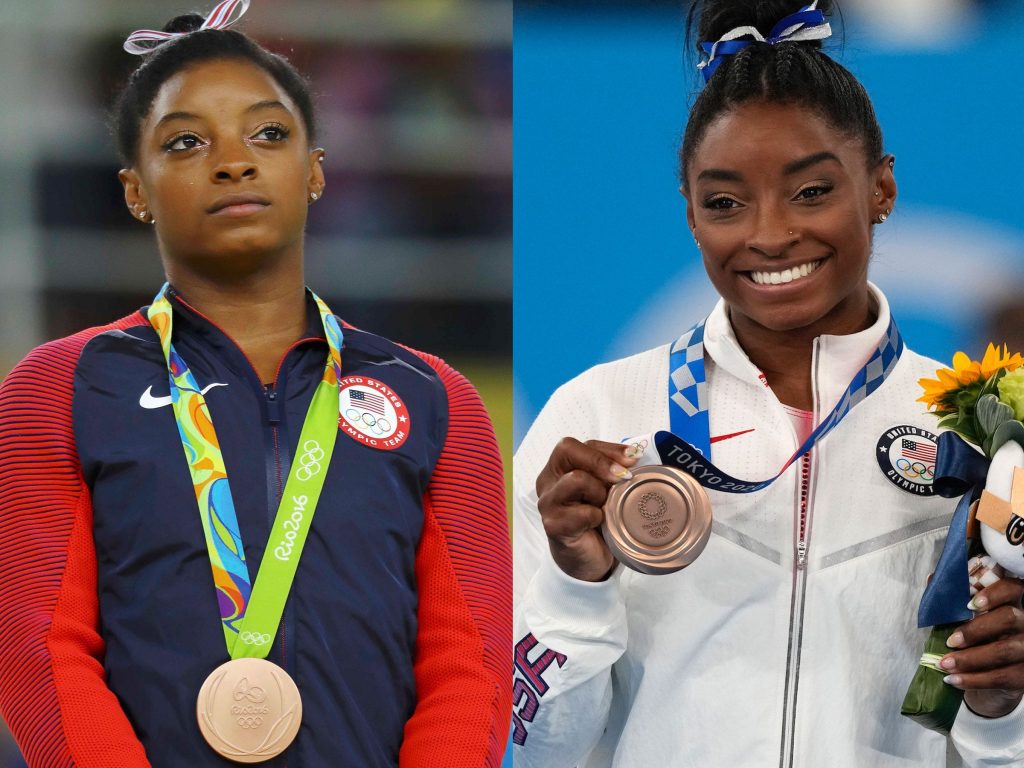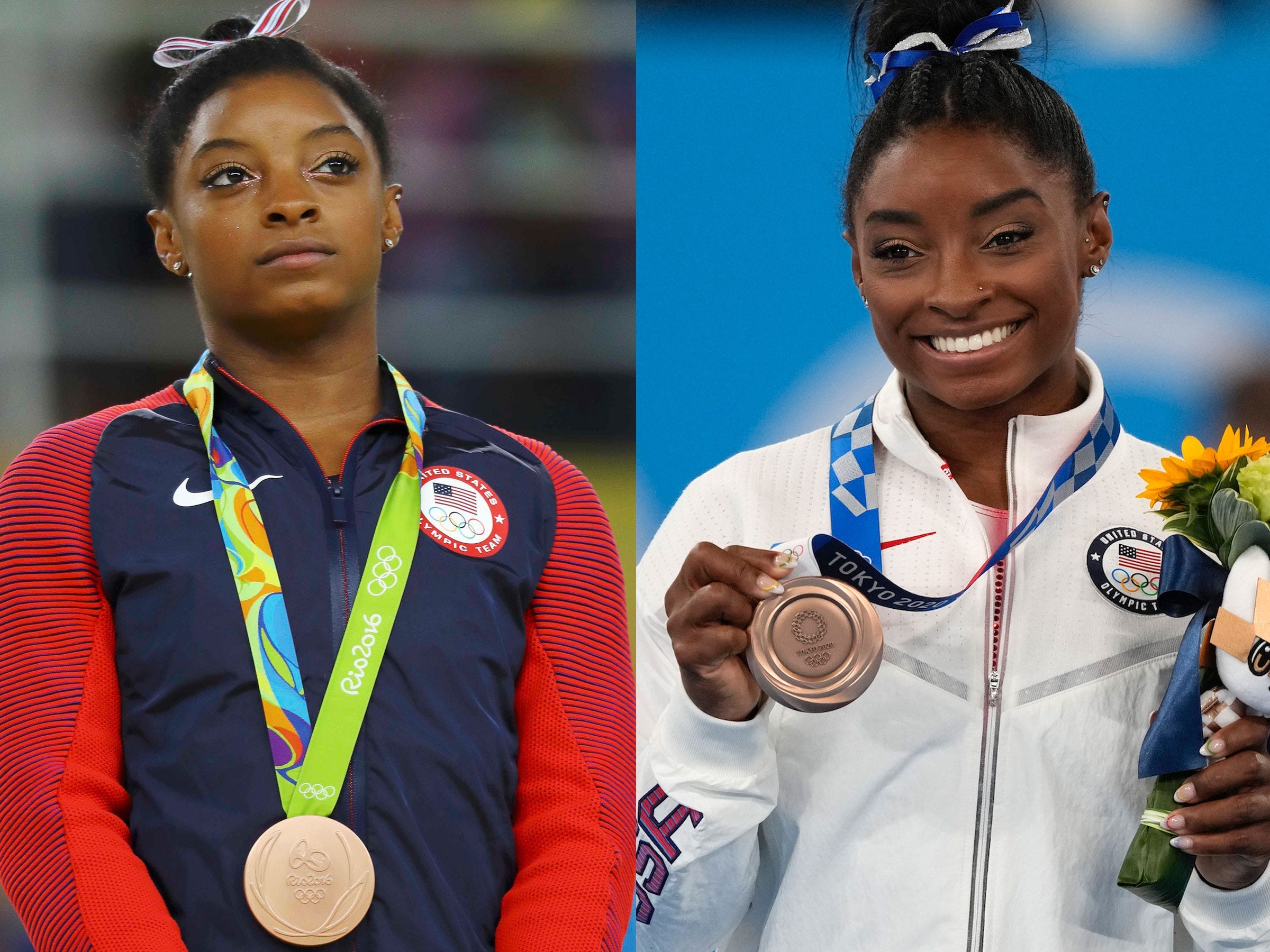
REUTERS/Mike Blake; AP Photo/Jae C. Hong
- Simone Biles made her Tokyo Olympics return Tuesday to take home a bronze medal on the balance beam.
- When she won bronze in the same event in Rio five years earlier, the showing was deemed a failure.
- Between now and then, Biles managed to teach the whole world a lesson in empathy and humanity.
- Visit Insider's homepage for more stories.
Same medal, same event, vastly different responses.
Maybe this is Simone Biles' point.
After withdrawing from five medal events in Tokyo over mental-health concerns and a battle with "the twisties," the greatest gymnast in the history of her sport returned to the Olympic competition on Tuesday. She nailed her balance-beam routine en route to a third-place finish behind China's Guan Chenchen and Tang Xijing.
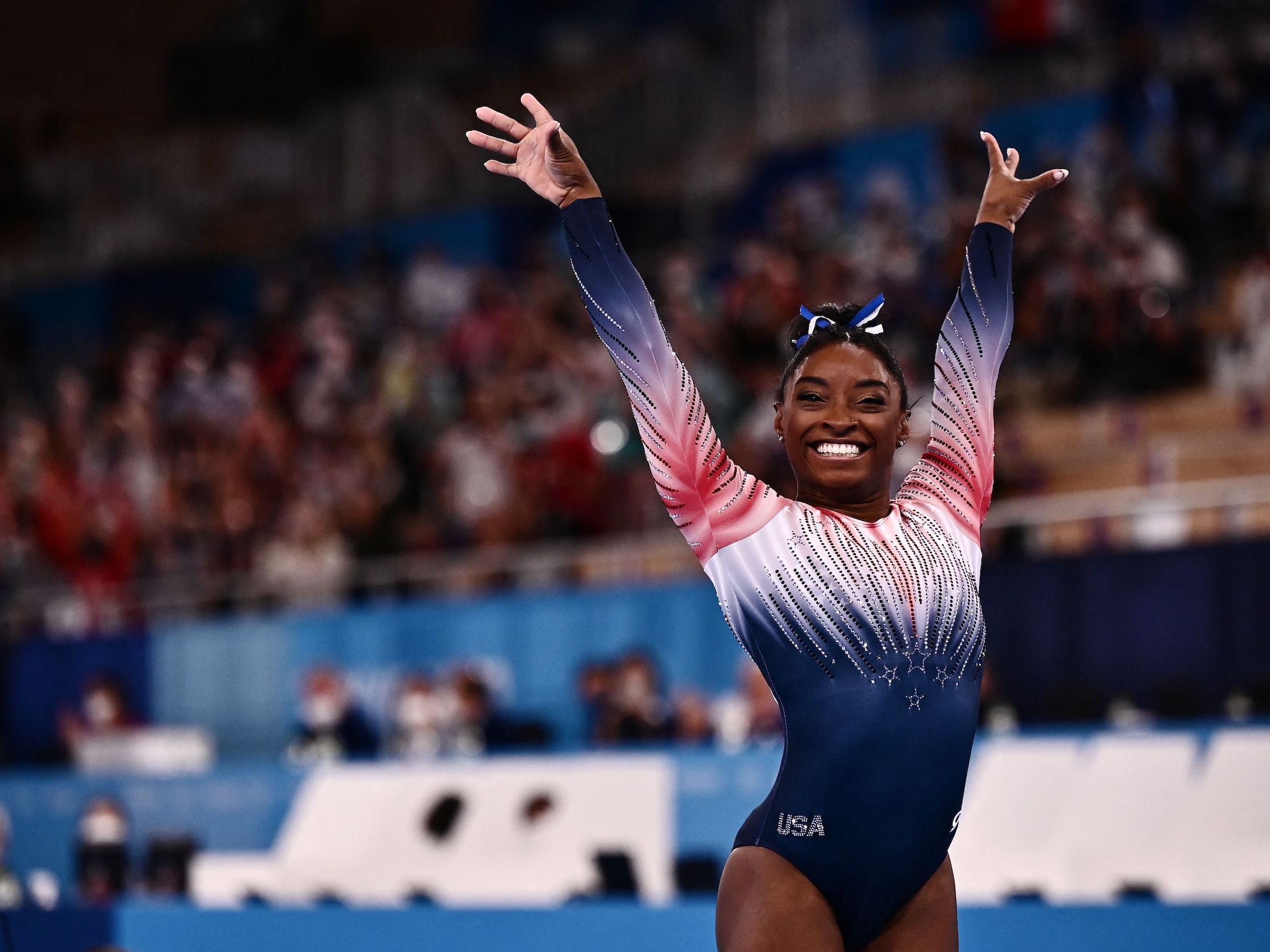
JEFF PACHOUD/AFP via Getty Images
In winning her seventh Olympic medal, Biles tied Shannon Miller as the most decorated American women's Olympic gymnast and matched Larisa Latynina's 32 medals across the Olympics and the world championships to share the title of the most accomplished athlete in gymnastics history.
It's undoubtedly an incredible feat for Biles, who has wracked up too many incredible feats to count at this point in her illustrious gymnastics career. But as NBC's John Roethlisberger proclaimed on the event's broadcast, "the medals are secondary."
The reaction to Biles' bronze is far kinder than the response to Biles third-place finish in the same event five years earlier
During the balance beam final at the 2016 Rio de Janeiro Olympics, a then-19-year-old Biles famously slipped during her performance and grabbed the beam with her hands to maintain her balance. She took a major point deduction but still finished the routine well enough to earn a spot on the podium.
And she was happy with that result, she has said. It was everyone else who expressed disappointment.
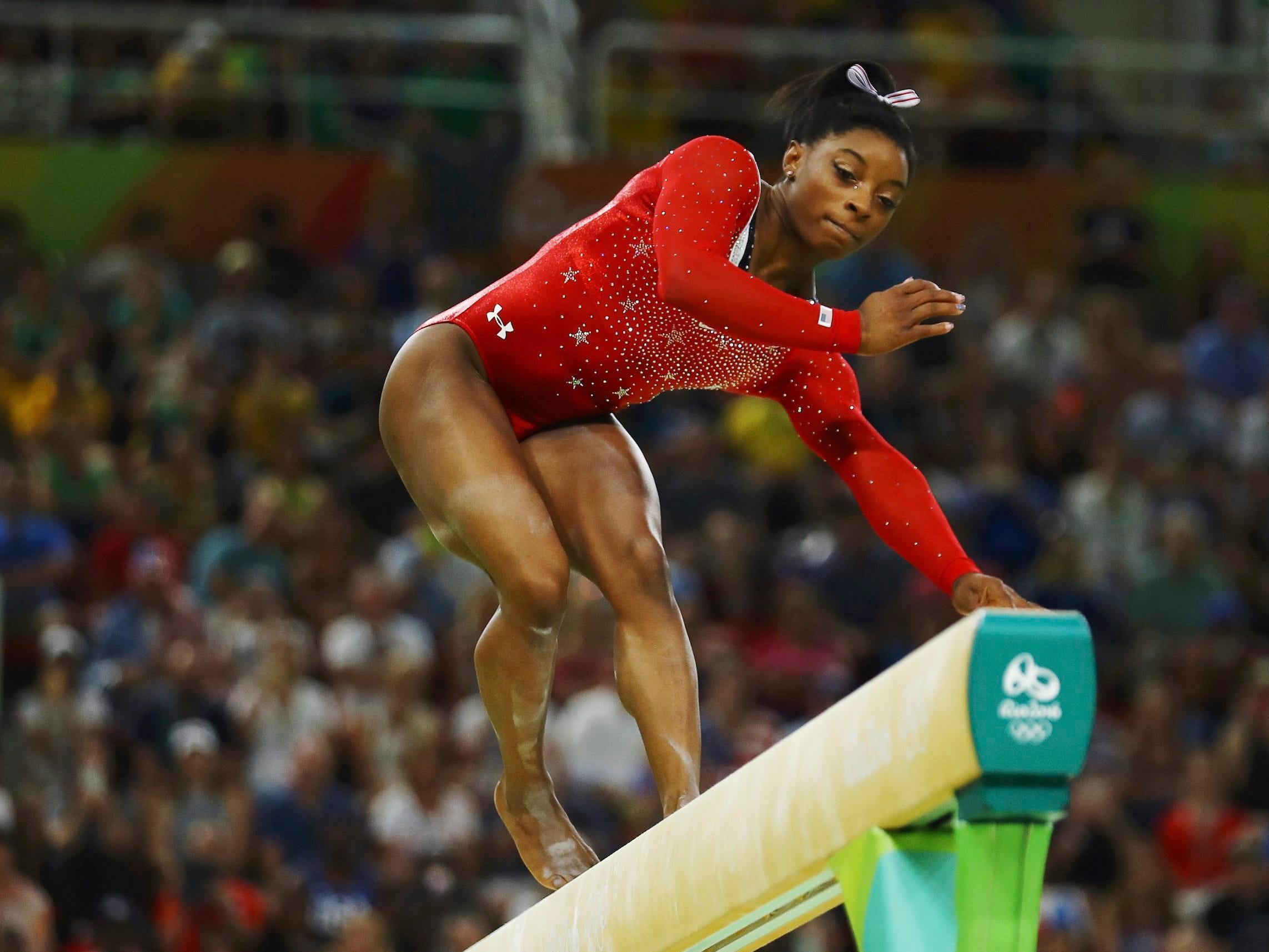
REUTERS/Mike Blake
"I remember finishing beam," Biles said during the second episode of her Facebook Watch docuseries, "Simone vs Herself." I was super excited, but at the end of the day, I was pissed because people were mad that I didn't get gold."
"I was still happy with my bronze, but I couldn't be happy because nobody else was happy for me," she added. "And so I just felt alone in that aspect."
Compared to the four gold medals she won earlier in those games, Biles' bronze was viewed by many as something of a failure - or at the very least inferior to her other Olympic hardware.
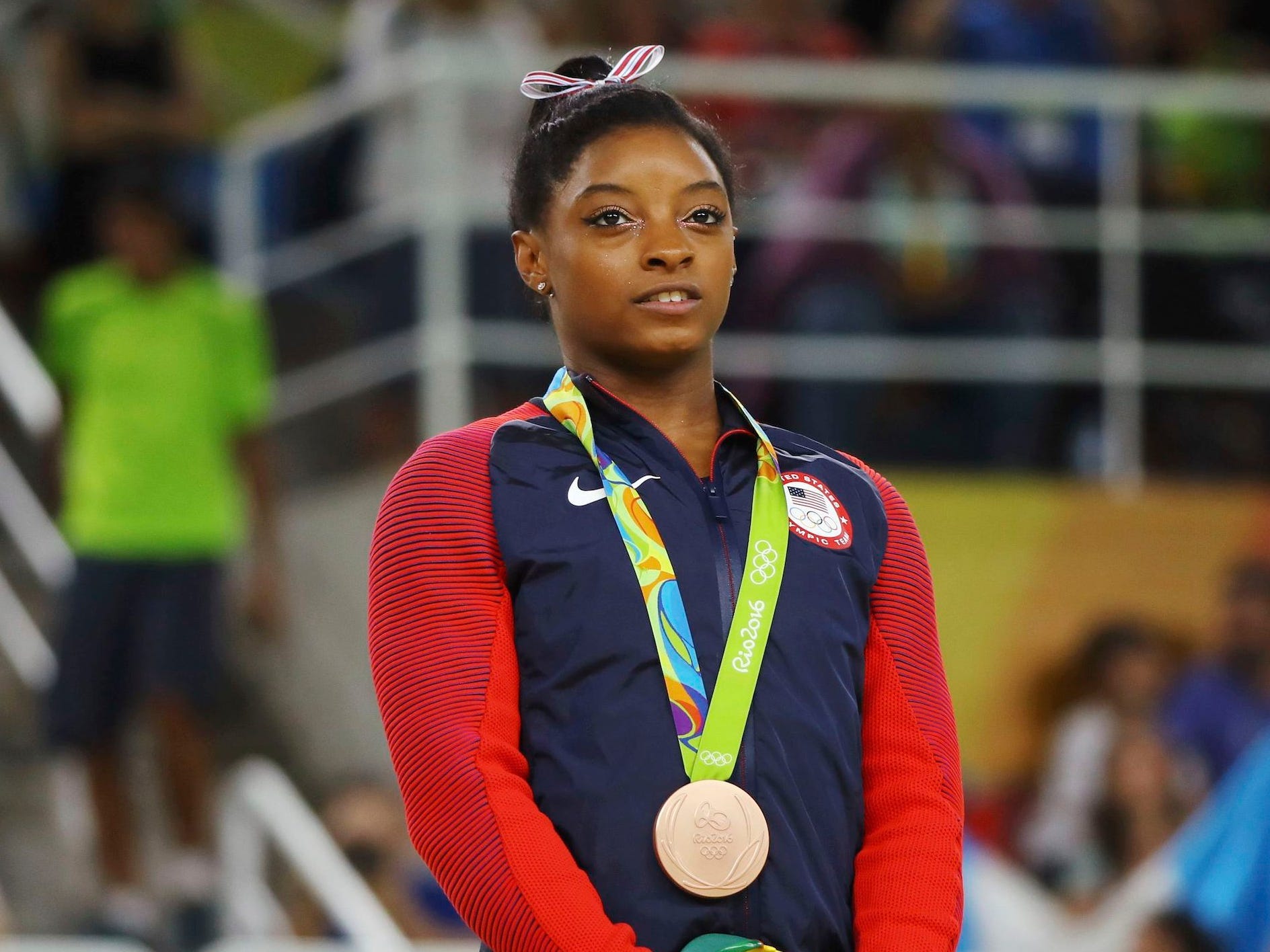
REUTERS/Mike Blake
"I came out of 2016 with five medals, but nobody recognizes that medal," Biles said. "So every time I go somewhere, [people say] 'four-time gold medalist.' But I have five medals!"
"My bronze feels so neglected," she added.
This time around, casual viewers, fans, and experts alike are hailing Biles' bronze medal as a major accomplishment
Just like the last time she won bronze, Biles has four Olympic gold medals to her name. But five years and an absolute whirlwind later, her most recent bronze medal has been perceived as far shinier than the one she brought home from Rio.
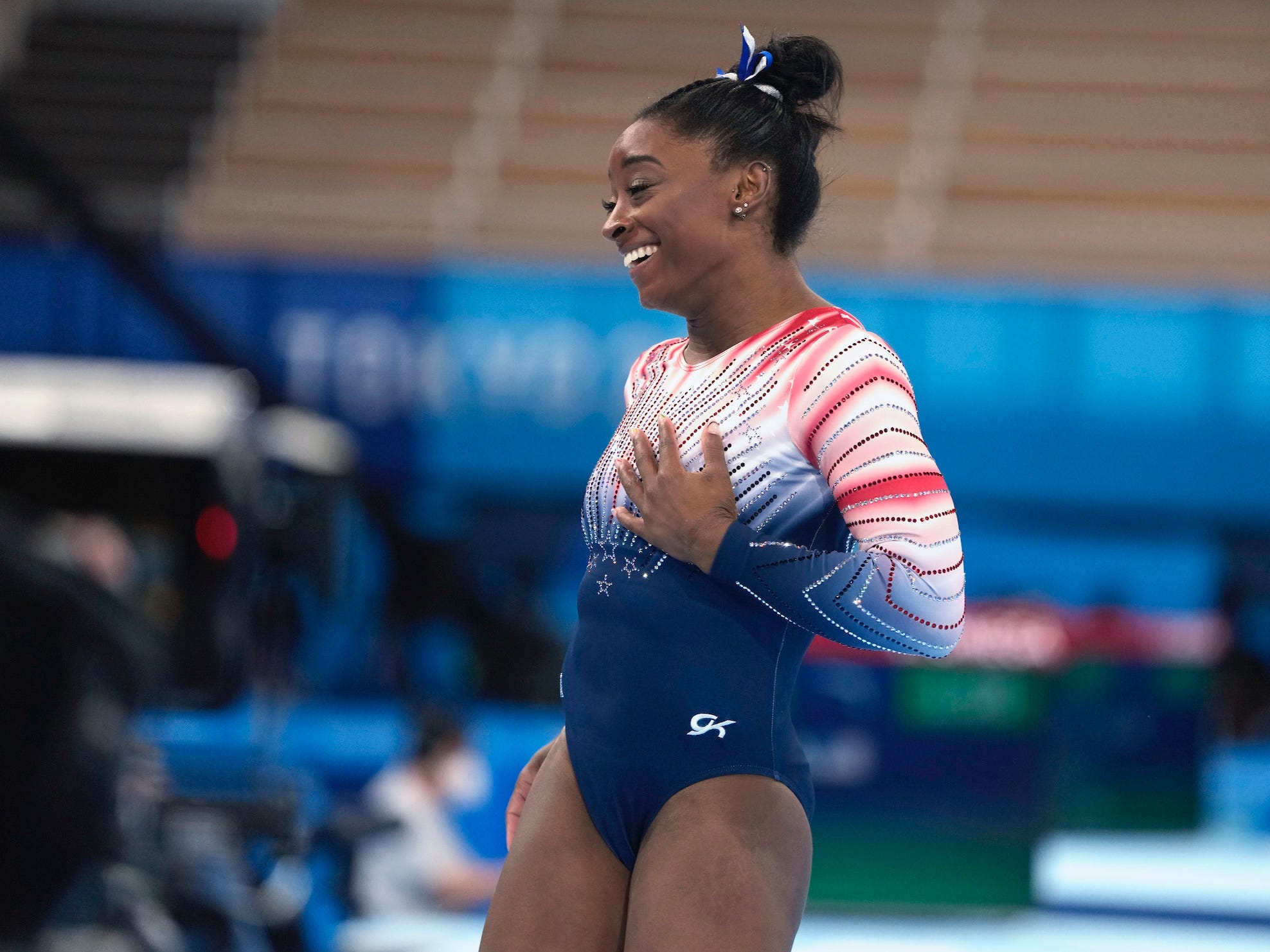
AP Photo/Natacha Pisarenko
The difference, of course, is the context surrounding her latest triumph.
Upon her arrival in Tokyo, Biles dealt with mental-health struggles and a battle with "the twisties" - a disorienting phenomenon dreaded by gymnasts and divers alike. The challenges prompted Biles to pull out of five medal events in Tokyo, shocking the entire world in the process.
Even with "the weight of the world on my shoulders," as she described it, and the public scrutinizing her every move, Biles contemplated returning to the gym for one final event. And as she prepared to make it happen, she received the devastating news that her aunt had "unexpectedly passed" while she was halfway across the world in Japan.
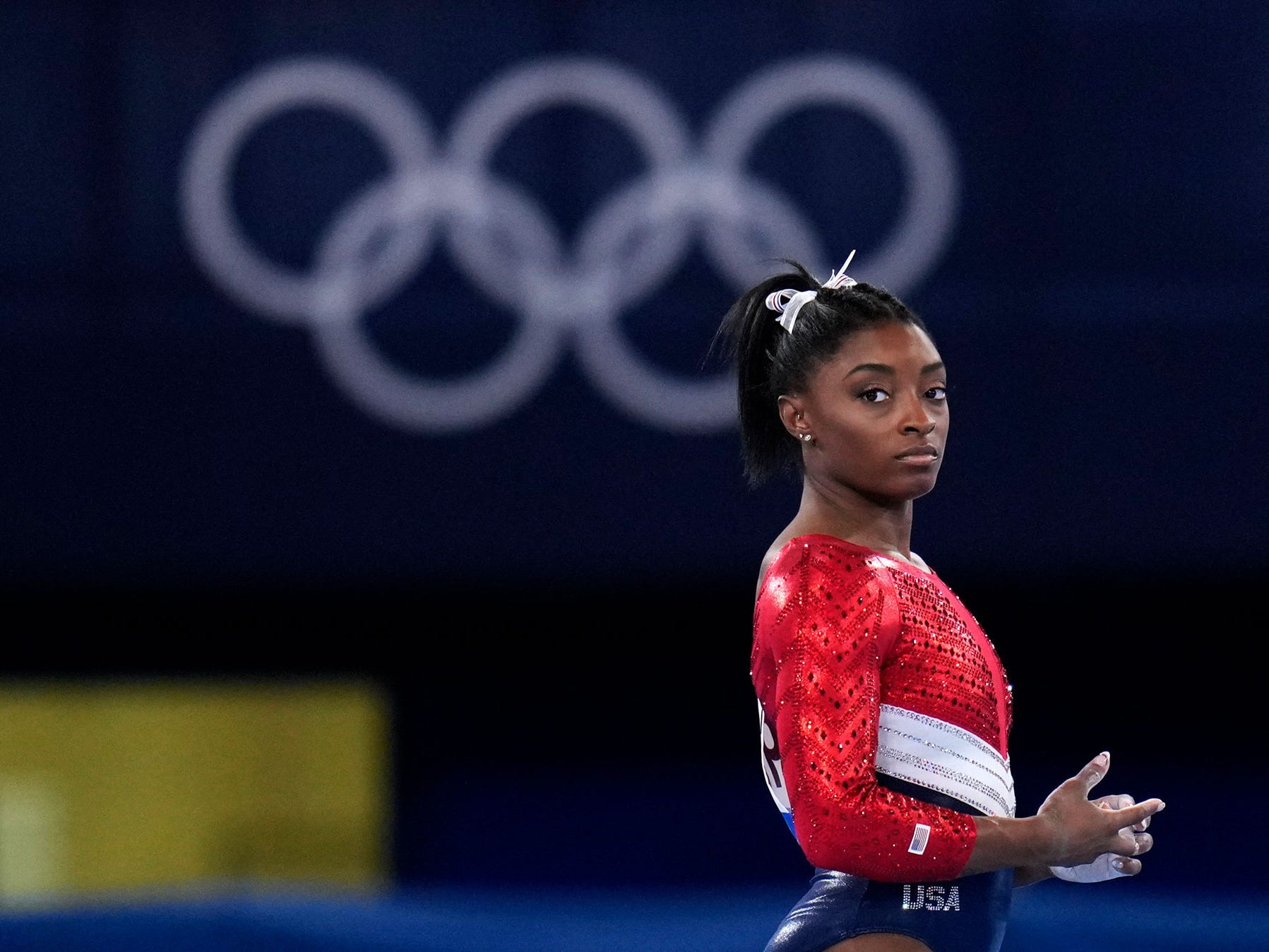
Gregory Bull/AP
Another factor, of course, is everything Biles grappled with before these Olympic Games even began. In 2018, she came out as a survivor of assault at the hands of disgraced Team USA doctor Larry Nassar. She struggled with suicidal thoughts and bouts of depression as a result.
Couple that with a jarring global pandemic that forced her to deal with USA Gymnastics - the organization that failed to protect her and hundreds of others from Nassar's abuse - for an extra year, and it becomes abundantly clear that the superstar's path to the Olympics was mentally taxing beyond measure.
Still, she perservered. Winning a medal of any color was just a bonus.
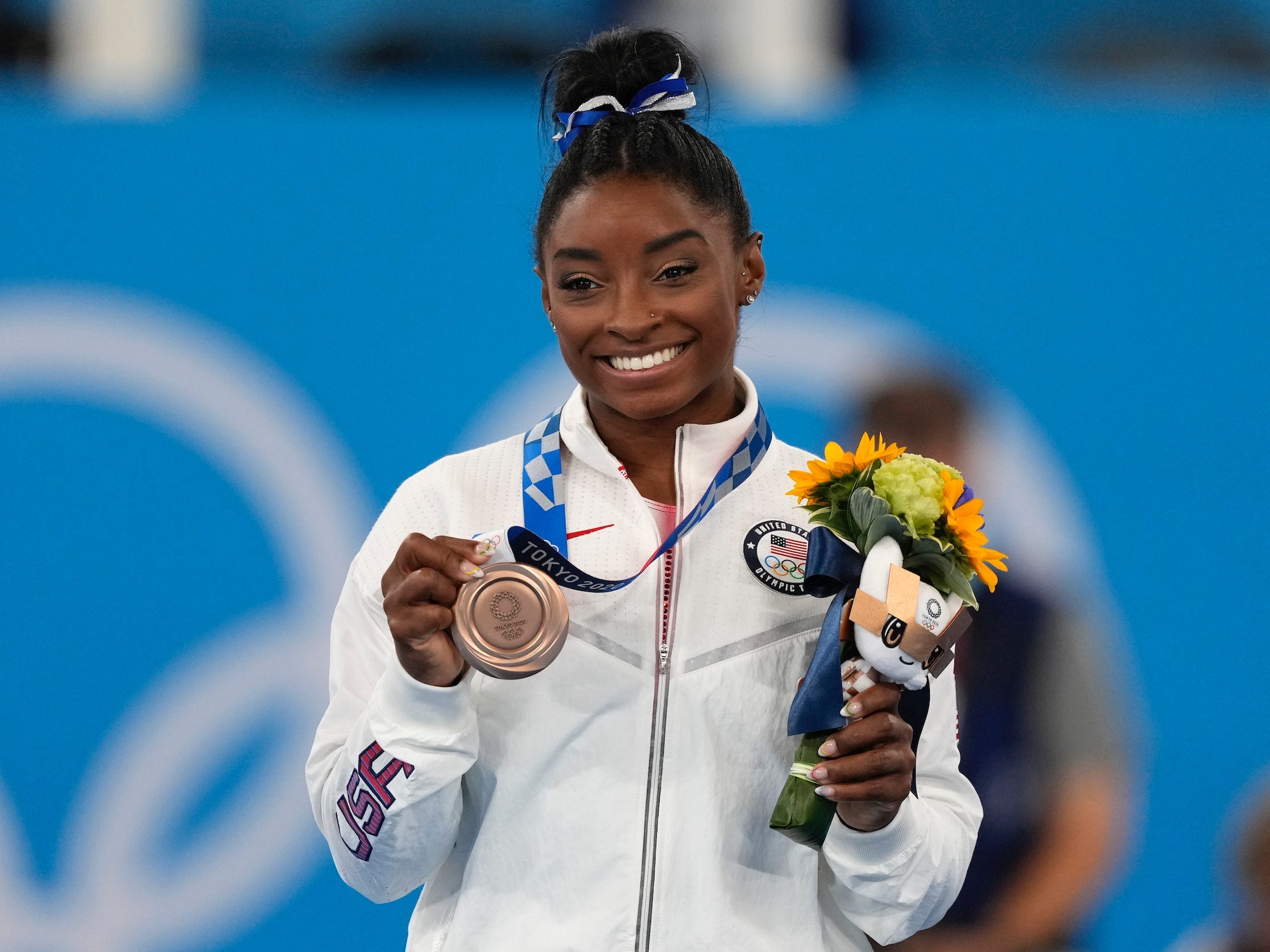
AP Photo/Jae C. Hong
In 2016, it was gold or bust for Biles. Five years later, her appearance alone was a feat. Humanity was the difference.
The public undoubtedly reacted differently to each of Biles' bronze medals on the balance beam apparatus. But before her Olympics debut in 2016, the then-teenager was virtually unknown to anyone outside of the gymnastics world. We knew her not as Simone Biles, the person, but instead as Simone Biles the phenomenon.
So when Biles slipped on the beam and fell to third place, we reacted accordingly; the marvel of gymnastics was flawed after all. The machine had short-circuited.
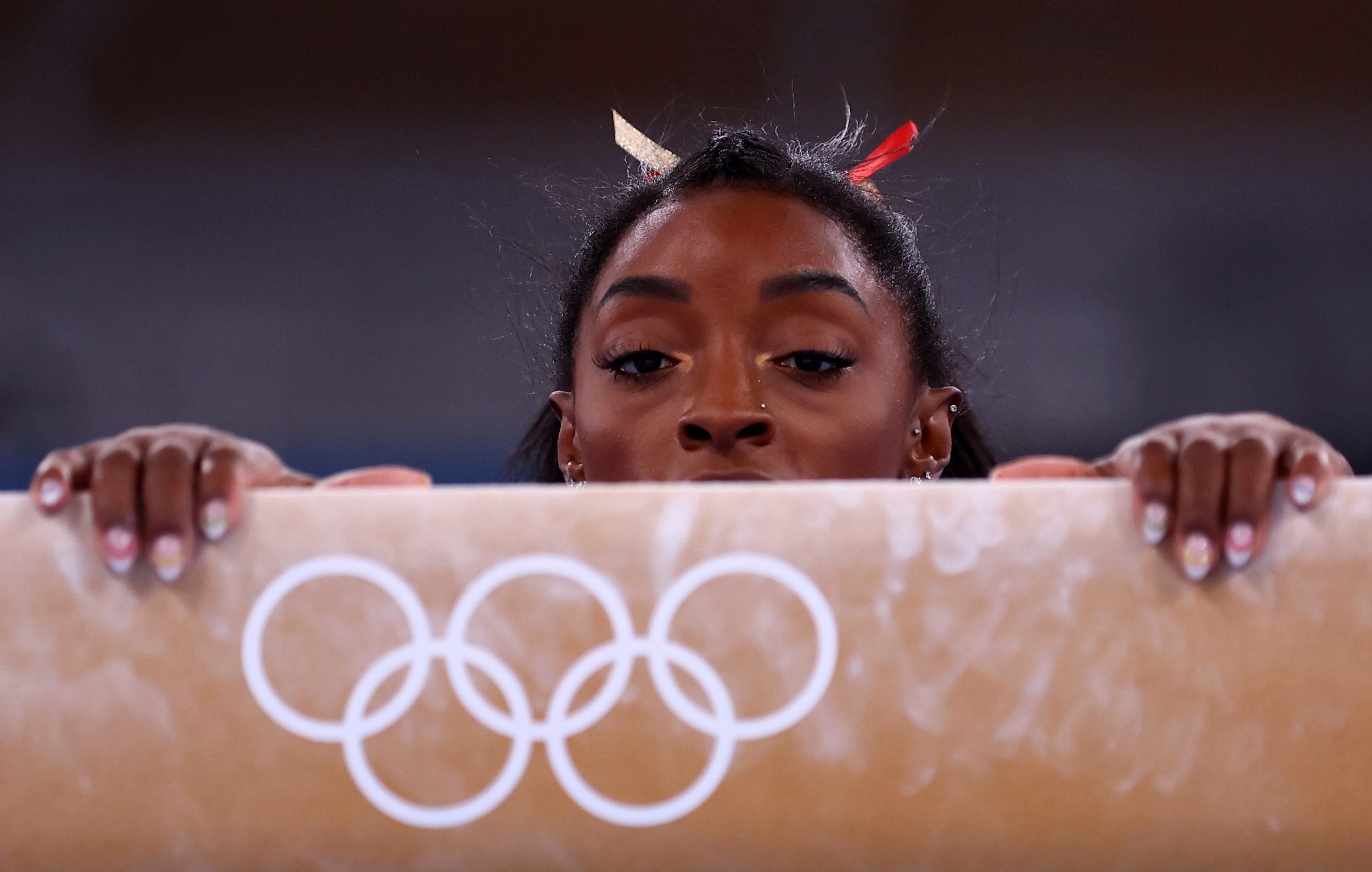
REUTERS/Mike Blake
Much has changed in the half-decade between Rio and Tokyo, and much of the world has had the privilege of getting to know Simone Biles, the person. She's a daughter, a girlfriend, a role model, an ally, and a mother to two French Bulldogs - Lilo and Rambo. She's playful and bubbly, gets nervous before big moments, and, believe it or not, is terrible at pilates. She's also dealt with more than her fair share of struggles throughout her young life.
Biles has generously shared it all with the world: the good, the bad, and the ugly. Thanks to her courage and vulnerability over the past five years - particularly in Tokyo - the world has gotten to know Simone Biles as more than an unparalleled athlete.
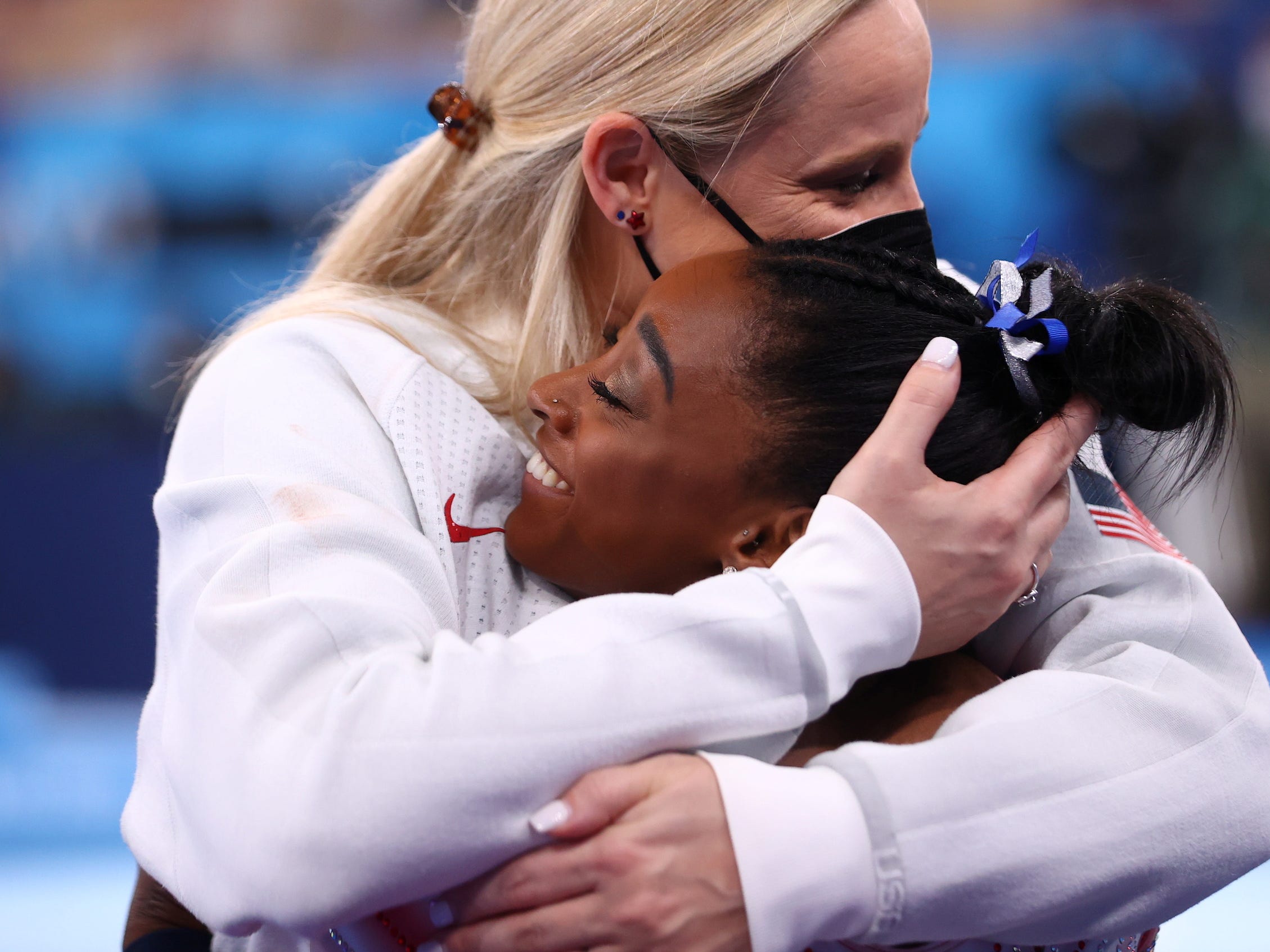
REUTERS/Lindsey Wasson
"At the end of the day, we're not just entertainment," Biles said after Tuesday's balance beam final. "We're humans."
Knowing her allowed the world to identify with her. And maybe now the world will offer that same compassion to other athletes and public figures, too.
Perhaps Simone Biles' greatest accomplishment transcends her other-worldly gymnastics feats and her medal count; maybe the lesson in empathy and humanity she's imparted on the world is most valuable of all.
